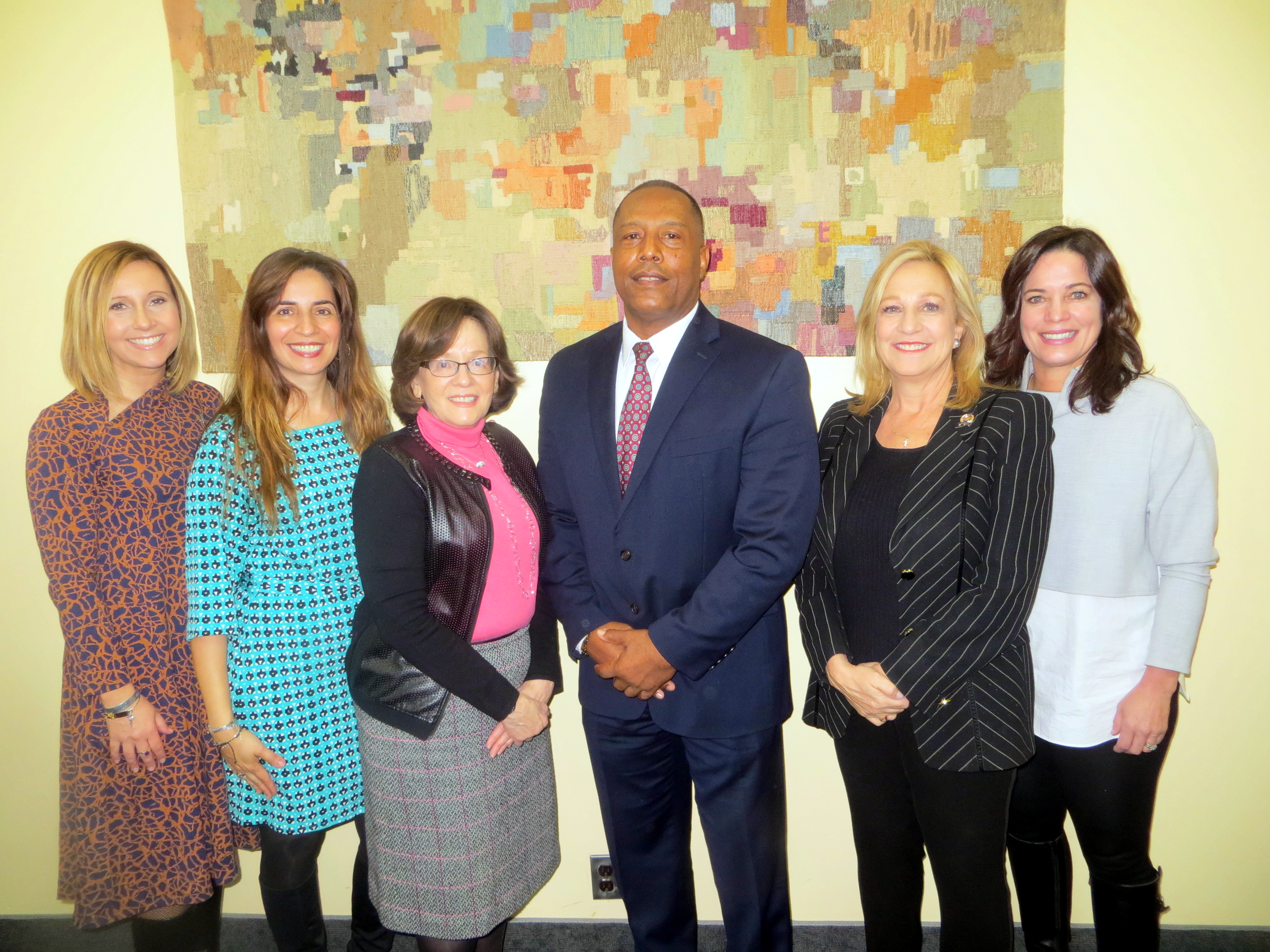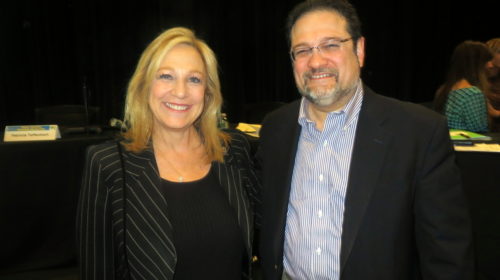
BY HILLARY VIDERS
SPECIAL TO NORTHERN VALLEY PRESS
TEANECK, N.J. —— On Nov. 21, Temple Emeth in Teaneck was packed with over 200 people who had come for a community wide advocacy forum titled “Sexual Violence: Changing the Culture.”
[slideshow_deploy id=’899′]
The forum was hosted by the National Council of Jewish Women Bergen County Section and organized by co-vice president of advocacy and education, Bari-Lynne Schwartz and event co-chairs Ina Miller Silverstein and Joan Snider.
Besides numerous council members, there were many honored guests, including Rabbi Jordan Millstein of Temple Sinai in Tenafly and David Cohen of Alternatives to Domestic Violence.
The panel was comprised of : state Assemblywoman Valerie Vainieri Huttle; Patricia Teffenhart, the executive director of the New Jersey Coalition Against Sexual Assault; Helen Archontou, CEO of the YWCA Bergen County; Liz Corsini, vice president and director of programs for the Bergen Family Center; Barry Harris, coach of the Dwight Morrow High School football team; and Elke Stein, director of domestic violence and sexual abuse at Jewish Family Services and Children’s Center of Clifton-Passaic.
The issue of sexual abuse and violence is most timely, given the news headlines about it which seem to pour forth every day. Over 50 Bergen County program partners have joined NCJW BCS on this key issue.
The panelists were introduced by Silverstein, co-chair of the forum. Huttle moderated the panel and began by showing a video, “Culture Shock: Changing Our Culture of Violence,” that had been made by local high school students. It began with disconcerting statistics, such as the fact that one in three girls will be sexually assaulted by the age of 18, and one in five girls and women will be raped during their lifetime.
The video then depicted several commercial advertisements that depict scantily-clothed women being sexually dominated by men. These widely publicized advertisements feed the rape culture.
The video continued with a series of interviews of several dozen teenagers who courageously spoke about their experiences. Most had either witnessed or had been subjected to some form of sexual abuse or harassment.

Huttle then spoke about how she has seen the culture of sexual violence around her and how she championed laws and policies that guard against sexual abuse. She highlighted the recent spate of high-profile people in Hollywood, sports, the television industry and politics who have been accused—naming Harvey Weinstein, Bill O’Reilly and Charlie Rose—asking, “So, do we believe the women yet?”
Huttle then asked each panelist, “What have you done to change the sexual violence culture?”
All of the speakers in turn discussed what their organizations are doing. Most have programs that educate both children and teachers who interact with them to understand that “no means no.” But, whereas in the past, these initiatives centered around high school and college students, they are now trickling down to the very youngest pre-K children.
Stein made an important point when she said that young children should be advised to always walk with a buddy and that they need to know what is inappropriate touching and that if it occurs, to tell an adult that they trust. At the other end of the spectrum, Stein advises adults that “when a child tells you that someone did something inappropriate to them, believe your child and take action.”
Several panelists reinforced this credo and explained how they are working to reverse the stigma of public embarrassment and self-shaming has prevented children and women from speaking up about rape for decades. Corsini related that when the iconic football player Ray Rice of the Baltimore Ravens assaulted his fiancee and dragged her by her feet, most people reacted by blaming the woman. That is when Corsini said she reached out to Barry Harris, the coach of the Dwight Morrow High School football team, and said, “we need a call to action.”
As a result, Harris began speaking to all the athletes, and three years ago Corsini instituted the ZONE, a program sponsored by the Bergen Family Center.
Harris explained that when he began training the Dwight Morrow High School football team, many of the athletes were not aware of sexual harassment and did not know how to recognize it.
[slideshow_deploy id=’899′]
“Football is such an aggressive sport that sometimes boys have to learn that what happens on the field has to stay on the field,” said Harris. “In the last several years, the problem has become more visible, and the ZONE program has been extremely helpful.”
All Dwight Morrow High School football and soccer team members take this program, which consists of three sessions per team. The program focuses on teaching the ZONE Green Dot Theory: “See something, say something.” Going even further, the teen athletes are given tools to change attitudes in others to prevent sexual abuse in their community.
“In the last three years, we’ve had 27 Division I players that have earned scholarships to colleges, nine of which are being considered as prospects by the NFL.,” said Harris. “When they were juniors and sophomores, we decided that in order for our athletes to make a difference on campus and to sustain the money that they were getting, we had to give them training in sexual violence. Now that we are having the conversation and they are the popular guys on campus, they are taking what they learned to their colleges and sharing it with those around them, then their friends start acting differently.”
During a high point of the afternoon, one of the women panelists said that the movement against sexual violence needs male as well as female leaders, and asked that all the men in the audience who were willing to stand up against sexual violence to please stand. All of the men present did exactly that, resulting in a spirited round of applause.
Throughout the forum, the panelists all gave thanks that New Jersey has Huttle as a legislator, because women are needed to change the power structure to counteract sexual inequality.
“It is ironic that I am lobbying for gender equality and I have to do this in an atmosphere that is filled with a male misogynistic power structure,” said Teffenhart, executive director of the New Jersey Coalition Against Sexual Assault.
Teffenhart also said, “We have to have these conversations not just in politics but around the dinner table. We can’t just send our children off to college and assume that they have the tools that they need to recognize and avoid sexual predators.” Archontou, of the YWCA Bergen County, made a key point that resonated throughout the audience: “Rape is not about sex, it’s about power and control.”
The forum concluded that the awareness of sexual violence that people are now experiencing is the tip of the iceberg and that awareness has come a long way, there’s still a lot more work to do.
[slideshow_deploy id=’899′]
Photos by Hillary Viders
